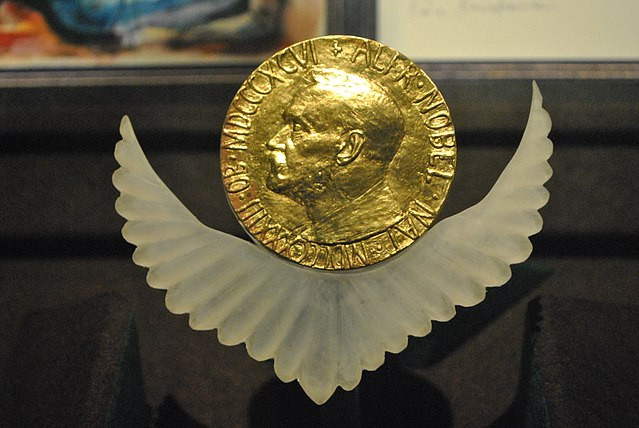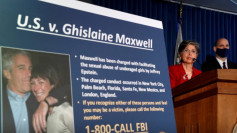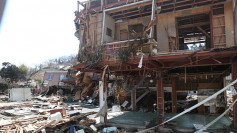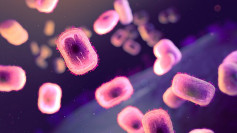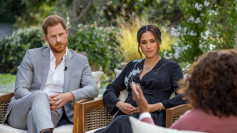In a powerful recognition of the relentless fight against nuclear weapons, Nihon Hidankyo, a Japanese organization of survivors from the Hiroshima and Nagasaki atomic bombings, has been awarded the Nobel Peace Prize. The Norwegian Nobel Committee highlighted the group's efforts to raise awareness of the catastrophic consequences of nuclear warfare, particularly amid rising global tensions over the use of nuclear arms.
Jørgen Watne Frydnes, chair of the Norwegian Nobel Committee, emphasized the critical importance of the award, noting that the "taboo against the use of nuclear weapons is under pressure." He referenced recent geopolitical developments, including Russian President Vladimir Putin's announcement of a shift in his nuclear doctrine aimed at deterring Western involvement in the Ukraine conflict. "It is alarming to see how threats of nuclear use are damaging this crucial international norm," Frydnes stated.
Nihon Hidankyo, formed in 1956 by survivors of the atomic bombings and victims of nuclear tests in the Pacific, has long campaigned against nuclear weapons. The group's mission is to ensure that the world never forgets the horrors experienced in Hiroshima and Nagasaki, where U.S. bombings in August 1945 resulted in over 200,000 deaths and led to Japan's surrender in World War II. Survivors, known as hibakusha, have become vocal advocates for nuclear disarmament, drawing on their personal stories to influence global policy and public opinion.
BREAKING NEWS
The Norwegian Nobel Committee has decided to award the 2024 #NobelPeacePrize to the Japanese organisation Nihon Hidankyo. This grassroots movement of atomic bomb survivors from Hiroshima and Nagasaki, also known as Hibakusha, is receiving the peace prize for its… pic.twitter.com/YVXwnwVBQO — The Nobel Prize (@NobelPrize) October 11, 2024
Tomoyuki Mimaki, the chairperson of Nihon Hidankyo's Hiroshima branch, expressed disbelief and joy upon receiving the news of the award. "Is it really true? Unbelievable!" he exclaimed, as he stood at the Hiroshima city hall when the announcement was made. Mimaki's emotional response underscored the significance of the recognition for those who have dedicated their lives to this cause.
This year's award comes at a critical juncture, with conflicts in Ukraine, the Middle East, and other regions intensifying concerns about the potential use of nuclear weapons. The Nobel Committee's decision reflects a call to action for global leaders to uphold the principles of peace and to resist the pressures to normalize nuclear threats. The committee acknowledged the pivotal role of the hibakusha in educating the world about the devastating impact of nuclear weapons, describing them as "selfless, soul-bearing witnesses of the horrific human cost of nuclear weapons."
The accolade for Nihon Hidankyo follows a line of similar recognitions by the Nobel Committee. In 2017, the International Campaign to Abolish Nuclear Weapons (ICAN) received the prize for its efforts to achieve a nuclear-free world. This continued focus on nuclear disarmament highlights the ongoing relevance of the cause in today's geopolitical landscape, where nations like Russia and North Korea have been seen ramping up their nuclear rhetoric.
Shigeru Ishiba, Japan's Prime Minister, called the recognition of Nihon Hidankyo "extremely meaningful," emphasizing the need for continued efforts to abolish nuclear weapons globally. However, some view the award as a subtle criticism of Japan's reliance on the U.S. nuclear umbrella for its defense, highlighting the complex dynamics in the country's stance toward nuclear disarmament.
U.N. Secretary-General Antonio Guterres also congratulated Nihon Hidankyo, calling the hibakusha "clear-eyed witnesses" who remind the world of the catastrophic consequences of nuclear weapons. "It is time for world leaders to see nuclear weapons for what they truly are: devices of death that offer no safety, protection, or security," Guterres said in a statement.
The backdrop of this year's Nobel Peace Prize announcement includes not only the war in Ukraine, but also escalating violence in the Middle East. Tensions have risen dramatically following recent conflicts involving Hamas, Hezbollah, and Israel. The committee's decision to honor Nihon Hidankyo serves as a timely reminder of the urgent need to curb the spread of nuclear weapons as conflicts around the globe threaten to destabilize international security.
As the world approaches the 80th anniversary of the Hiroshima and Nagasaki bombings, the average age of the hibakusha is now almost 86, and their numbers are dwindling. Nihon Hidankyo's co-chair, Toshiyuki Mimaki, emphasized the urgency of the group's mission: "One day, the hibakusha will no longer be among us as witnesses to history, but their message must endure," he said.
